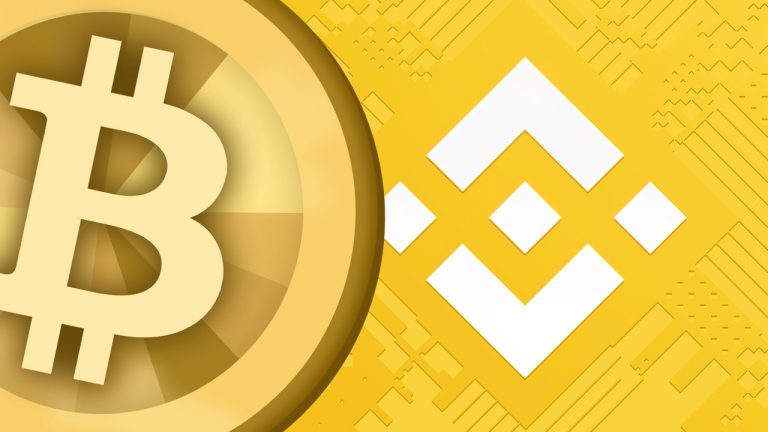 In a recent announcement by Binance on April 4, 2024, the firm disclosed its decision to halt support for Bitcoin-based Ordinal non-fungible token (NFT) collectibles within its NFT marketplace. The directive from Binance calls for users of its NFT marketplace to withdraw their Ordinal inscriptions by May 18, 2024. Binance NFT Marketplace to End Ordinal […]
In a recent announcement by Binance on April 4, 2024, the firm disclosed its decision to halt support for Bitcoin-based Ordinal non-fungible token (NFT) collectibles within its NFT marketplace. The directive from Binance calls for users of its NFT marketplace to withdraw their Ordinal inscriptions by May 18, 2024. Binance NFT Marketplace to End Ordinal […]
The restaurant was being built alongside a private members lounge that was only open to people who bought NFTs, but rising construction costs ultimately halted the project.
Bold plans for a nonfungible token (NFT)-based restaurant and private members lounge in San Francisco have ended abruptly after the company behind the project halted construction due to challenging macroeconomic factors.
The two venues were being built on Salesforce Park and were going to be dubbed the “Sho Restaurant” and “Sho Club Sky Lounge.”
The latter would only be accessible to holders of the Sho Club NFTs, which cost anywhere from $7,500 to $300,000, and offered access to other future Sho Group hospitality offerings.
Speaking with San Francisco-focused news website SFGATE on Sept. 7, Sho Group CEO Joshua Sigel stated that it was no longer possible to build the project and confirmed that the company ended its lease agreement in July.

The CEO added: “Despite a strong demand for the concept with millions of dollars in both pre-sold and reserved memberships [...] we ultimately could not address the many concerns brought about by potential investors, most of which have been around the future of SF and the rising costs of constructing the restaurant.”
Sigel went on to highlight difficult macro factors that ended up making construction costs too expensive, such as “labor shortages, supply chain disruptions, geopolitical uncertainty, and inflation.”
Sigel says Sho Group has refunded everyone who bought the NFTs.
Binance’s NFT marketplace suddenly announced that it would soon wind down support for Polygon-based NFTs but did not provide a clear explanation as to why.
In a Sept. 8 blog post, Binance NFT stated that it will discontinue its The Sandbox NFT Staking Program later this month, citing a decision to streamline product offerings on the platform.
The program allows users to stake their Polygon-based Land NFTs from The Sandbox to earn SAND token rewards; however, it will officially shut down on Sept. 26.
Users will have their NFTs automatically unstaked and returned to the spot wallets.
As part of the closure of the program, Binance NFT also stated that support for the Polygon network will come to an end on the same day, with users being given until Dec. 31 to withdraw all their Polygon NFTs from the marketplace.
Explaining the move, all Binance NFT stated was that “more details will be provided to impacted users at a later date.”

To celebrate the new NFL season that kicked off this week, NFT-friendly social media platform Reddit launched NFL-themed NFT avatar collectibles.
TODAY IS THE DAY Introducing NFL #RedditCollectibles for all 32 @NFL teams (limited to 500 units per team). Draft yours now! #NFLxReddit #2023NFLKickoff https://t.co/e43sIHl9oW pic.twitter.com/WOjRagyJmv
— Reddit (@Reddit) September 6, 2023
The collection was launched on Sept. 7 and covers all 32 teams. The NFTs are being sold for $25 a pop, and the artwork depicts the Reddit Snoo mascot wearing various uniforms.
There are 500 tokens available per team; however, at the time of writing, it appears that many of the sets have more than 400 NFTs still available, suggesting there hasn’t been any rush to snap them up yet.

As part of a partnership with NBA star Paul George and popular sock, underwear and T-shirt brand Stance, NFT project Rumble Kong League has dropped phygital basketball socks.
The drop is part of a broader collaborative project dubbed Hyper Socks, which will eventually see the launch of a 3v3 basketball game with play-to-earn features.
Related: NFT startup Rario loses founders after $120M funding last year: Report
The first stage of the project saw the sale of tokenized socks that can be used in the upcoming game.
In a Sept. 8 announcement, the Rumble Kong League team kicked off stage two by opening up the sale of 250 boxes of physical Stance Sox, that are themed with the cartoon gorilla avatars from the project.
Two legends in their field, joining forces to create greatness.
— Rumble Kong League (@RumbleKongs) September 8, 2023
The RKL x @Stance HyperSocks are live!
Top performance rare fur quality that'll create a spark on any basketball court.
Only 250 available!
Grab your box before they're gone! pic.twitter.com/3rQXtTtciI
The partnership marks a significant mainstream partnership for the project, considering Stance’s ties to the NBA and other pro sports leagues.
The team behind NFT project OnChainMonkey is shifting its entire collection of 10,000 NFTs from Ethereum to Bitcoin in a massive undertaking expected to take several months.
The Base network’s “Onchain Summer” promotion in August resulted in over 700,000 NFTs minted by over 268,000 unique wallets, according to a Sept. 6 announcement from the team.
Magazine: NFT Collector: Giant Swan’s gothic VR dreamscapes… royalty nightmare on OpenSea

Binance said it will provide ten free chances for users to generate artwork every day.
Crypto exchange Binance’s nonfungible token (NFT) arm announced the launch of its artificial intelligence (AI) NFT generator that lets users produce custom artworks using AI technology.
On July 26, Binance NFT said its AI NFT generator dubbed “Bixel” is now permanently available for its users. According to the trading platform, the tool allows users to generate unique digital art and join the world of NFTs. However, those who wish to use the tool are required to complete the platform’s know your customer (KYC) identity verification process. Binance explained that:
“This critical measure is in place to maintain a trustworthy and secure platform for all users, aligning with best practices and regulatory requirements.”
In addition, those who wish to mint NFTs using the tool are also required to pay a minting fee of 0.008 BNB (BNB), which is around $1.9 at the time of writing. According to Binance, the fee ensures that the NFT creation process is executed properly within the BNB smart chain.
#Binance's AI NFT generator is back!
— Binance (@binance) July 26, 2023
Bixel is now publicly available, letting you unleash your creativity to generate your own AI artwork.
Create your digital art before the 10th of August for the chance to win 1 #BNB!
Learn more here https://t.co/Mh5VYHmYmp
When it comes to generating artwork using AI, the crypto exchange said they will provide ten chances for users to produce art for free each day.
Related: Google, OpenAI, Microsoft form ‘Frontier Model Forum’ to regulate AI development
A test version of the artwork generator was also launched earlier this year. On March 1, Binance released a beta version of the AI NFT generator and called it “Bicasso.” The beta version of the AI tool reached its full capacity within 2.5 hours, achieving the allotted minting limit of 10,000 NFTs shortly after it went live.
However, just days after the beta launch, the exchange was accused of stealing the AI NFT generator idea from BNB Chain hackathon winners. On March 2, community member “ggoma” alleged that Binance copied their project called "Chatcasso," which won first prize at the BNB Chain hackaton held in Seoul, South Korea back in December 2022. When asked about the issue, a Binance spokesperson denied the allegations and claimed that “Bicasso” was developed independently two weeks before the hackathon.
Magazine: Tokenizing music royalties as NFTs could help the next Taylor Swift

Only selected ERC-721 collections in the Polygon network are currently available on the Binance NFT marketplace.
Binance NFT, the nonfungible token (NFT) arm of crypto exchange Binance, has announced that the Polygon network has been included in its supported blockchains within the marketplace.
According to the announcement, the move further expands the NFT ecosystem within the Binance community. With the new integration, users of the Binance NFT marketplace can trade NFTs on various blockchains like Ethereum, BNB Smart Chain and Polygon using their Binance accounts.
We’ve now added support for Polygon on the #Binance NFT Marketplace!
— Binance NFT (@TheBinanceNFT) March 8, 2023
Users can now buy, sell, deposit and withdraw NFTs on the Polygon network
Find out how to get started ⤵️
Despite the announcement, Binance is still keeping a strict approach to its NFT listings. Within the announcement, the NFT marketplace highlighted that not all NFT collections would be available at the moment. They wrote:
“Currently, only selected ERC-721 NFT Collections on the Polygon network are available on the Binance NFT Marketplace. Binance NFT will integrate more NFT collections on a regular basis.”
On Jan. 19, the NFT platform tightened its rules on NFT listings, saying it would delist NFTs with daily trading volume lower than $1,000. In addition, the exchange also limited the number of NFTs that artists can mint per day. Apart from this, Binance also said it would review NFT listings periodically and recommend those that do not meet its standards for delisting.
Related: Binance launches anti-scam campaign after Hong Kong pilot run
Meanwhile, with artificial intelligence (AI) finding its way into the Web3 space, Binance is also exploring AI. On March 2, Binance CEO Changpeng Zhao announced that its AI-powered NFT generator called “Bicasso” has launched and minted 10,000 NFTs in just 2.5 hours.
Despite its initial success, the AI tool was immediately haunted by controversy. A day after the launch of Bicasso, a BNB Chain hackathon winner accused Binance of stealing and copying their project called “Chatcasso.” The exchange dismissed the accusations and pointed out that NFTs and AI are common concepts. A Binance spokesperson told Cointelegraph that Bicasso was developed independently more than two weeks before the hackathon.
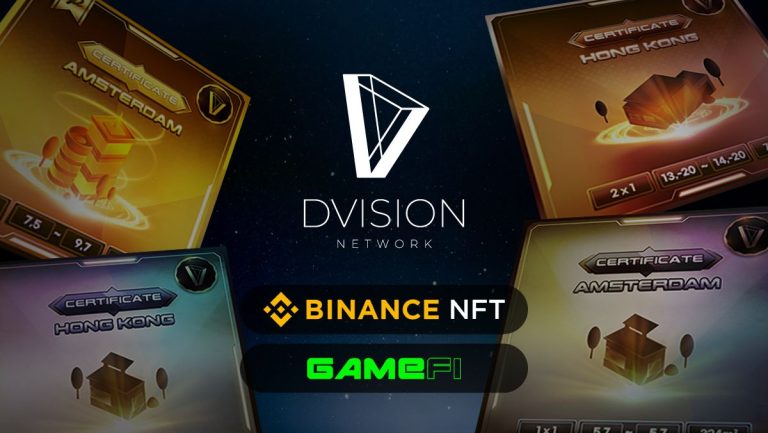 PRESS RELEASE. Despite the decrease of NFTs trade volume from all time high, the metaverse development is reaching all time high since more organisations and governments show high interest in this emerging technology. Such as recent Norwegian Government joins metaverse with Interpol is already operating in a virtual world. While most of the virtual assets […]
PRESS RELEASE. Despite the decrease of NFTs trade volume from all time high, the metaverse development is reaching all time high since more organisations and governments show high interest in this emerging technology. Such as recent Norwegian Government joins metaverse with Interpol is already operating in a virtual world. While most of the virtual assets […]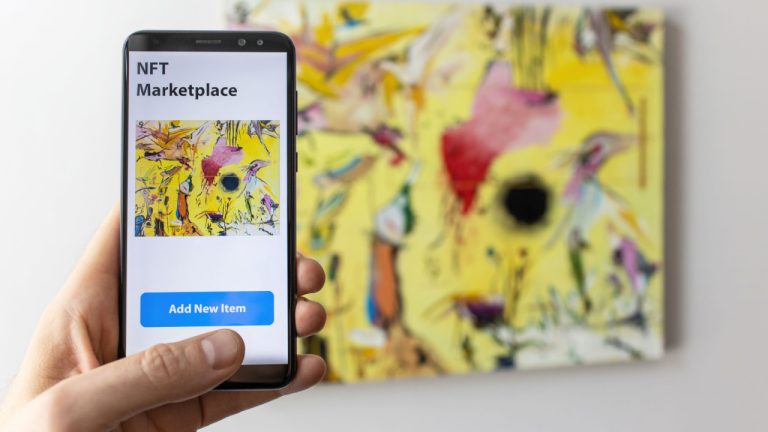 The art museum in the Eastern Ukrainian city of Kharkiv has partnered with cryptocurrency exchange Binance to offer non-fungible tokens (NFTs) of some of its most valuable artworks. Proceeds from the auction will be used to restore the museum’s activities and support its staff. Ukrainian Museum to Sell 15 Works of Art as Digital Collectibles […]
The art museum in the Eastern Ukrainian city of Kharkiv has partnered with cryptocurrency exchange Binance to offer non-fungible tokens (NFTs) of some of its most valuable artworks. Proceeds from the auction will be used to restore the museum’s activities and support its staff. Ukrainian Museum to Sell 15 Works of Art as Digital Collectibles […]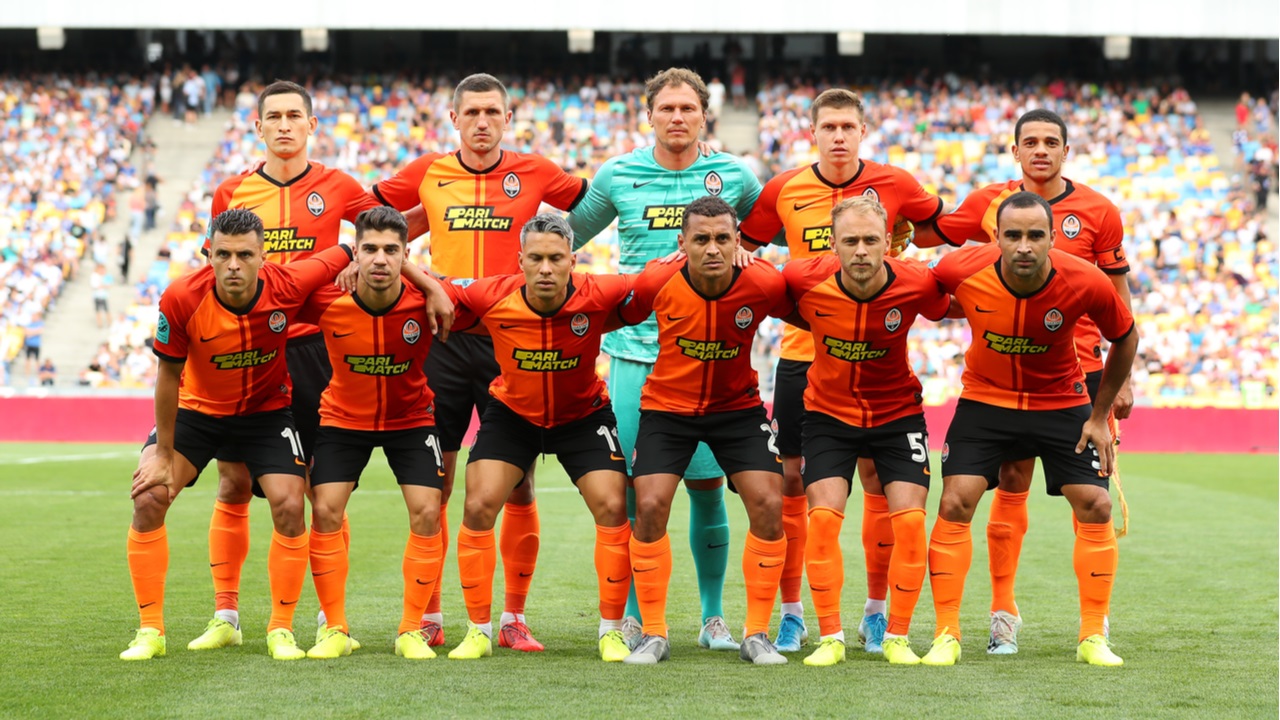 Shakhtar Donetsk, a leading soccer team in Ukraine, will sell a collection of non-fungible tokens (NFTs). The club intends to auction several signed jerseys to raise funds for Ukrainian citizens affected by the ongoing war with Russia. FC Shakhtar Donetsk to Auction Digital Collectibles With Help From Binance Binance NFT, the marketplace for non-fungible tokens […]
Shakhtar Donetsk, a leading soccer team in Ukraine, will sell a collection of non-fungible tokens (NFTs). The club intends to auction several signed jerseys to raise funds for Ukrainian citizens affected by the ongoing war with Russia. FC Shakhtar Donetsk to Auction Digital Collectibles With Help From Binance Binance NFT, the marketplace for non-fungible tokens […]
Interviewed by Cointelegraph at the Paris Blockchain Week Summit on Wednesday, Helen Hai recalled the empowering support she received from Changpeng Zhao (CZ) when pitching the initial idea for what has become a multi-million-user platform.
Attending and reporting from the two-day Paris Blockchain Week Summit (PBWS), Cointelegraph’s managing editor, Alex Cohen sat down with Helen Hai, head of Binance's NFT platform for a candid discussion on the early inspirations for their NFT platform, as well as her vision for regulatory communication, among other topics.
Citing the methods in which the Asian economy capitalized on the growth potential within the second industrial revolution by driving job creation for the lower and middle classes, Hai stated that the internet era — typically referenced as Web2 — was a contributing factor for the widening of digital-economic disparities between various societal groups.
During the interview, Hai spoke on how this imbalance could be re-established through the usage of Web3 technologies, as well as revealing insights into the early stages of Binance’s NFT marketplace, the importance of cultivating reciprocal relationships with regulators in policy making, and the emphasis required on female leadership in the Web3 ecosystem.
.@iamwill is joining @HelenHaiyu and Athena from @TheBinanceNFT for a fireside chat at Paris Blockchain Week to talk about NFTs, crypto, and how it'll shape the future of the music industry!
— Binance (@binance) April 12, 2022
Watch on #Binance Live now ⬇️
Binance launched its nonfungible token (NFT) marketplace in June last year in an attempt to capitalize on the mainstream euphoria around digital collectibles, registering 2.5 million NFTs and over 1,000 creators at the turn of 2022.
Hai revealed that that platform’s initial inspiration arose from the potential for an artistic renaissance with the support of blockchain technology, speaking with pride on their optimistic values of idea creation and learn-as-you-go style deployment.
“For us, it’s very much 2% strategy and 98% implementation.” Stating that founder and CEO, Changpeng Zhao, known as CZ, “ really empowers leaders, like myself. If I have a good idea, he says, Helen, why don’t you just try it and you’ll prove yourself.”
"Six months down the line, we have accumulated millions of users, and have innovated the mystery box and the initial game offering (IGO) model for the gaming industry. We’re still in the learning stage, but we’re working with our users everyday on how we can help creators to get more connected with them.”
Related: Paris Blockchain Week, April 13: Latest updates from the Cointelegraph team on the ground
Sharing her expectations for the prospect of engaging in constructive, open dialogue with regulators in the crypto and NFT space, in addition to the possible hurdles of education literacy and governmental advocacy, Hai stated that she’s “very positive”, but that currently “regulation is very much a one way thing”, and should evolve into a “two-way communication” system.
“We need to get people in the crypto industry to find a good way to communicate everything we’ve done well and the things we need to improve to the regulators, and the regulators should also learn what is happening, what is actually achieving values, and how they can use regulations to protect the users.”
Hai was enthused by conversations with senior banking officials in Dubai who empathized with her concerns around the stringent financial limitations of banking transactions in comparison to the crypto industry. She mentioned that the growing trend of employments from the traditional finance and governmental office to crypto could help bridge the gap of understanding and foster greater

Binance's NFT marketplace is introducing its NFT Subscription Mechanism, a new feature that claims to give buyers a fair shake.
Due to the rise in demand, it’s increasingly harder to purchase nonfungible tokens (NFTs) on their initial launch. Because of the limited supply, and high demand, some NFT drops have sold out after only a few seconds of release.
With this, users who are interested in purchasing newly-released collections have no choice to wait until the initial owners decide to flip the NFTs for some profit, resulting in having to pay more or not being able to acquire any of the NFTs entirely.
Because of this, Binance introduced a subscription mechanism that lets everyone have an equal opportunity to buy newly-released NFTs on its marketplace. The marketplace’s new NFT Subscription Mechanism lets users have a higher chance of being able to purchase NFTs by limiting the allowed amount of NFT purchase per person and following a randomized buyer selection process.
Users who want to participate in NFT Subscription Mechanism sales need to follow a process that consists of four phases — preparation, subscription, calculation and distribution.
In the preparation phase, users have to hold the minimum amount of tokens required to participate. Binance notes that the minimum entry requirement is determined by the creators or project that will conduct the NFT sale.
The subscription phase comes next. Here, qualified participants will then be given participation tickets which will have purchase limits per user set by the NFT creators. The number of tickets received by a user will be the maximum amount of NFTs that can be purchased. However, users have the option to decide whether to use all or only a few of their tickets. Having more tickets doesn’t mean you will get the NFT. However, it will give you more chances to succeed in your purchase.
Related: Biggest NFT drops and sales in 2021
After this, the process moves forward to the calculation phase. This incorporates a randomized selection system to choose winning participation tickets from all who subscribed. The selected participants will be able to successfully purchase the NFTs. The final phase is the distribution, where the sale will proceed.
It’s undeniable that NFTs have grown immensely in recent months. With the global NFT sales volume approaching $20 billion, many speculate that NFTs may someday surpass even Bitcoin.
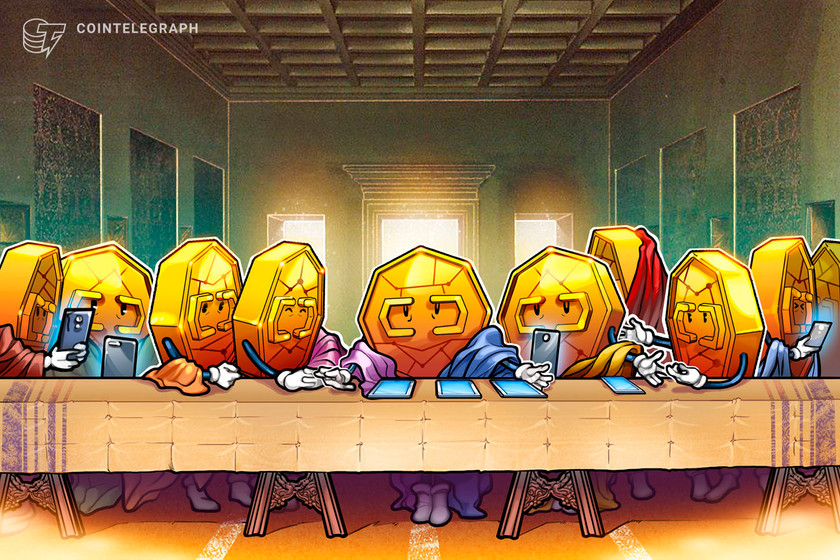
Masterpieces from Leonardo da Vinci, Vincent van Gogh, Claude Monet, and Giorgione will be tokenized for auction via Binance’s NFT marketplace next month.
Binance’s NFT marketplace has announced it is teaming up with the Saint Petersburg-based State Hermitage Museum to issue tokenized collectibles depicting the works of renowned artists including Leonardo da Vinci and Vincent van Gogh.
On July 27, Binance revealed it is partnering with the museum to create and issue the nonfungible tokens at the end of August. All Binance users will be able to participate in the auction.
The blog post attributes the idea to tokenize the artworks to The Hermitage, with the auction slated to launch limited edition NFT copies of Da Vinci’s Madonna Litta, van Gogh’s Lilac Bush, Claude Monet’s Corner of the Garden at Montgeron, and Giorgione’s Judith.
Two NFT copies will be created of each masterpiece, one of which will be auctioned via the Binance NFT marketplace, while the second tokens will be stored at the museum. Each NFT copy will be signed and dated by the Hermitage’s director, Mikhail Piotrovsky.
The blog post describes the project as offering “a new level of accessibility to the Hermitage’s collection” and emphasizing “the democratic nature of the museum.” The tokens also serve to highlight “the importance of digitalization as a new stage in the world of collecting artworks.”
Piotrovsky noted The Hermitage’s intention further leverage NFTs and other digital technologies moving forward, stating:
“New technologies, in particular blockchain, have opened a new chapter in the development of the art market, led by the ownership and the guarantee of this ownership.”
“Recognition of blockchain technology and NFTs by one of the largest museums in the world is another step towards global digitalization,” said Helen Hai, the head of Binance NFT. “We highly appreciate the opportunity to cooperate with The State Hermitage; together we are making history.”
Related: Chicago Bulls team up with Shopify to launch NFT series
All proceeds from the sale will go to The State Hermitage Museum. The tokenized copies will also be showcased at the Hermitage’s upcoming NFT art exhibition, which is currently slated to take place at the museum this fall.